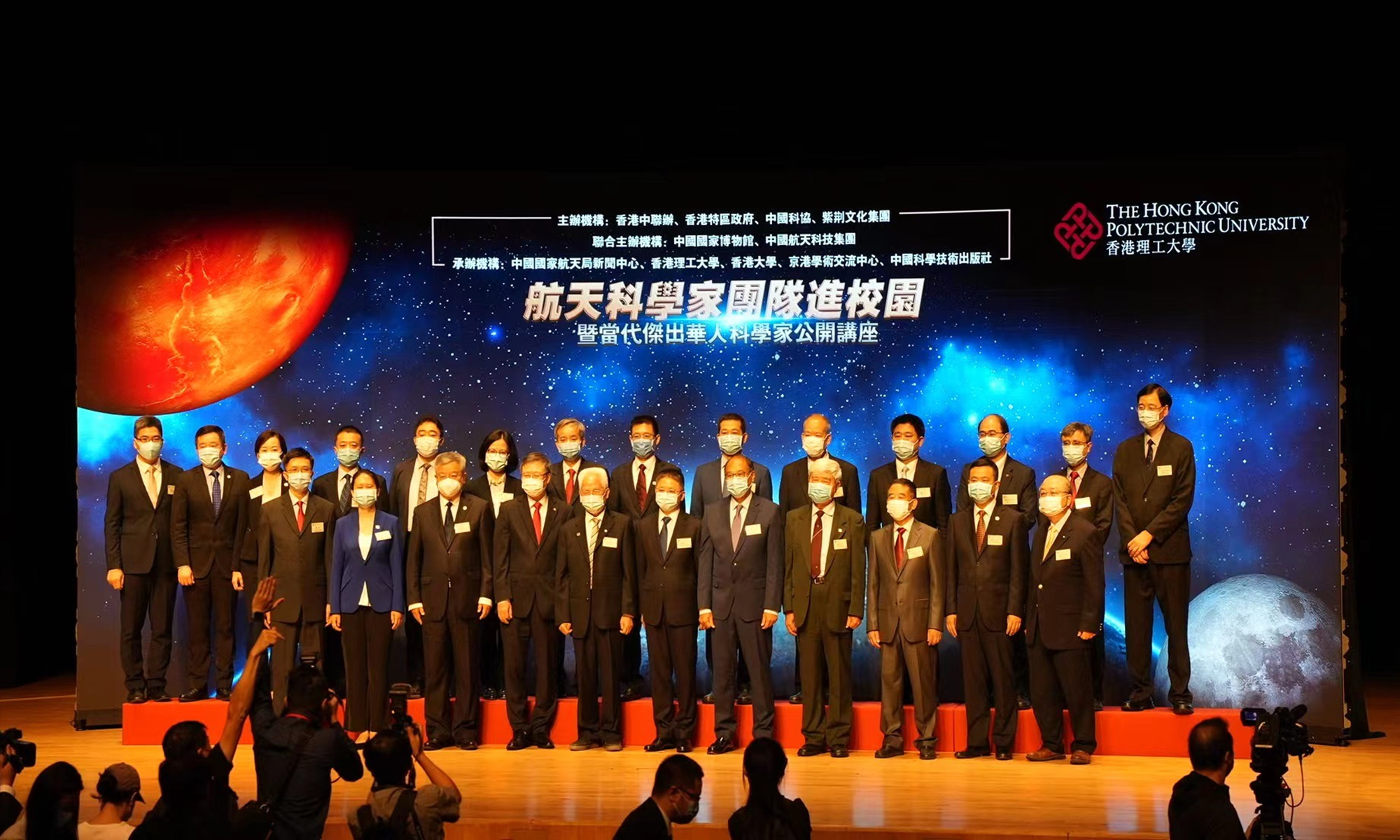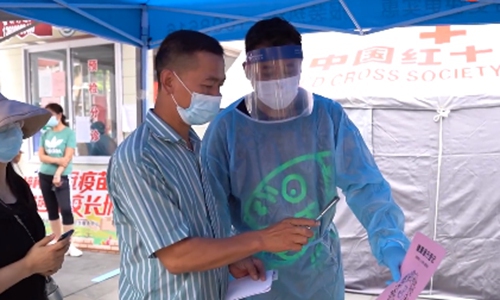SCI-TECH / AIR & SPACE
China's 'space giants' inspire HK youth ahead of July 1 anniversary

A national "star team" of scientists from China's top space projects started its much-anticipated visit to Hong Kong schools on Wednesday.
As the Shenzhou-12 manned mission sent three taikonauts to China's first space station, topics concerning aerospace development have become popular among Chinese people, and even more so for those in Hong Kong, as a "star team" led by top space experts visited local universities and exchanged views with Hong Kong youths, while inviting them to contribute to the country's space exploration.
The timing of the visits, coming just days ahead of the July 1 celebration of the 100th anniversary of the founding of the Communist Party of China and Hong Kong's 24th anniversary of return to the motherland, serves as a call to Hong Kong scholars and youths to devote themselves to the country's scientific progress, experts told the Global Times on Thursday.
The team, which consists of the commander-in-chiefs and the chief designers of the country's Long March carrier rocket series, Shenzhou manned space programs, BeiDou Satellite Navigation System and the Tianwen-1 Mars mission, arrived in Hong Kong on Tuesday. They were scheduled to visit the Hong Kong Polytechnic University (PolyU), the University of Hong Kong (HKU) and six middle schools from Wednesday to Friday.
Chief executive of the Hong Kong Special Administrative Region (HKSAR) government Carrie Lam welcomed the "star team" from the Chinese mainland on Wednesday evening.
She said that she was honored to receive such a group of guests, who have played a leading role in the country's aerospace achievements, and called on the Hong Kong people to take the rare opportunity to get a close look at the country's latest space feat.
At the Thursday event, deputy chief designer of the BeiDou Navigation Satellite System Xie Jun gave a speech at the PolyU campus, highlighting China's aerospace achievements and BeiDou spirit.
"I hope that the young generations in Hong Kong will cherish the opportunities presented to you, plan well your future path and direction, and devote more to the country's aerospace development," Xie noted in the speech.
He added that chemistry and physics majors are most welcome to join the Beidou system's work.
China completed the global geolocation network known as the BeiDou Satellite Navigation System (BDS) in June 2020, making China one of four global navigation service providers. The others are the US' GPS, Russia's GLONASS and Europe's Galileo.
Compared with the other three systems, Xie said, BDS offers better messaging capabilities with a short message service capacity of 1,200 Chinese characters per message. It is also capable of providing precise point positioning services with decimeter-level dynamic accuracy and centimeter-level static accuracy, a feature that outperforms the others.
The "star team" received warm welcomes from faculties and students at the university campuses, who flocked around the scientists to take photos with their idols.
Long Lehao, 83, the senior developer of the Long March carrier rocket, was soon surrounded by HKU students after his speech, who were quite eager to ask for Long's opinions on various matters, as reported by the People's Daily on Thursday.
The events were livestreamed on various social network platforms, attracting thousands of viewers and more than 30,000 thumbs-up responses on the official WeChat account of PolyU over the two days.
A student surnamed Zhou, who is about to start studying at PolyU for a doctorate, said that he was inspired by the speeches and the researchers' warm encouragement. "It would be patriotic if everyone does their job well," Zhou was quoted as saying in a People's Daily report on Wednesday.
Song Zhongping, a Hong Kong-based space analyst, told the Global Times on Thursday that the timing of such events, which come just days ahead of the 24th anniversary of Hong Kong's return to the motherland, shows the mainland's special care for the region, and serves the purpose of patriotic education.
Song believed it sent a signal that the country's science community expects the participation of Hong Kong talent, and China's missions in space and other sectors need more voices from the region.



